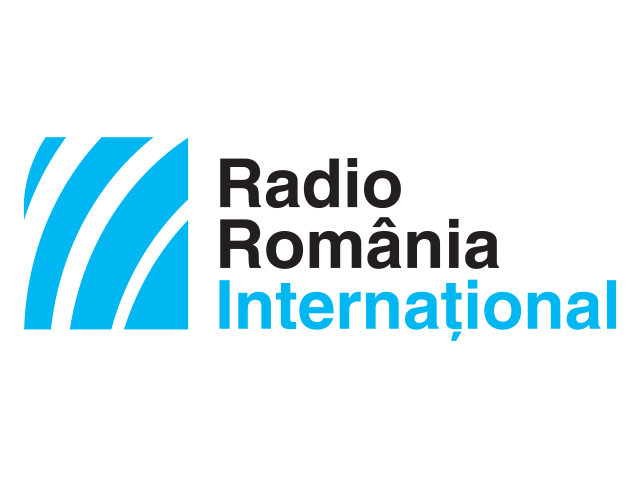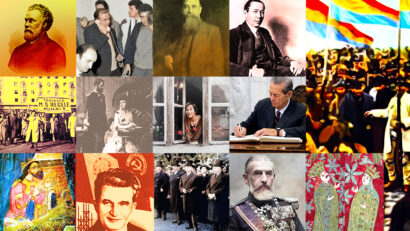Abraham Goldfaden
The early days of the Yiddish Theatre in Romania

Steliu Lambru, 03.09.2018, 10:13
The Yiddish theatre in Romania is closely linked to the name of Abraham Goldfaden, who started to create it as a literary genre and to found it, as an institution, in Iasi, northern Romania. Goldfaden, who authored 40 plays, completely identified himself with this artistic field, being considered the founder of Jewish modern theatre, a model and source of inspiration for the following generations of playwrights. A non-conformist spirit, a fervent supporter of rigour and of the idea that education and culture enlighten people, Godlfaden is difficult to describe by common standards, as his personality goes beyond that.
He was born in 1840, in Ukraine, which was at the time part of the Russian Empire, as the only son of a Jewish clockmaker. He went to a rabbinical school where he received traditional Jewish education and learnt several foreign languages. He arrived in Iasi, the former capital of Moldavia, at 26 years of age. He had already published several plays, poems and literary criticism articles in the Yiddish language cultural press in Russia and the Hapsburg Empire. Camelia Crăciun is teaching Yiddish culture at the Bucharest University and is a literary adviser at the State Jewish Theatre in Bucharest. According to her, Abraham Goldfadens dramatic talent found fertile soil in Romania.
“In Iasi, in the last quarter of the 19th century the necessary conditions were met to set up the first Yiddish theatre and the first Yiddish professional theatre company. This was just the beginning, as the phenomenon gained ground around the world to ultimately reach its peak in the US, in a cultural environment enjoying an extraordinary public. There had always been tensions in the Jewish culture, before the Holocaust, between the Hebrew, the language of the elite, used in the administration, that is the religious and juridical language, spoken mainly by men, and the Yiddish, which has always been perceived as a language of lower prestige, in spite of tendencies to put it in its rightful place, that of second Jewish language. The first Yiddish-language writers chose literary pseudonyms to avoid compromising their families and public shaming. Goldfaden had always been driven forward by his deep conviction that he was meant to educate the Jewish people. He was a fervent supporter of Haskalah or Jewish Enlightenment (an intellectual movement among the Jews of Central and Eastern Europe), a man open to modern ideas, who was well aware of the fact that he would have a rather difficult task to accomplish, to create an institution from zero, without getting any support from anyone.
Passionate about culture and his mission to educate Jewish people in the Yiddish language, Goldfaden dedicated himself to his innovative theatre project. Camelia Crăciun.
“The question has an open answer: where did his idea of setting up a Yiddish theatre and professional theatre company stem from? There are three possible explanations. First of all, Itzok Librescu, a purchaser of season tickets, said that during a conversation with Goldfaden, his wife had the idea of changing his project to issue a publication in Iasi. At the time, over 40% of the population of Iasi were Yiddish-speaking Jews. Librescus wife reportedly told Goldfaden that it would be great if he could set up a theatre company just like the Romanians had. Romanian Theatre had already been functioning for decades and many Jews from Iasi went to see Romanian-language theatre performances. Goldfaden himself had a different opinion. While trying to discover the cultural life of the Jews in Iasi, he met various buskers reciting many of the poems he had published in Yiddish, or performing songs whose lyrics were based on his poems. Noticing that there was already a tradition for buskers to go to various restaurants to entertain people, it seemed like a good idea to compile a repertoire made up of his poems, turned into hits. Thirdly, one of the buskers and singers who enjoyed great success back then in Iasi and whom he got in contact with, Israel Grodner, says it was his idea. He was reciting some of Goldfadens poems and it was his idea to invite Goldfaden to see a performance and start a bigger project together.
Goldfadens ambition and the motivation he received from those around him, finally bore fruit. The first Yiddish theatre show in the history of European Jews was also staged in Iasi, and it was a real success.
“The first show was presented by none other else but Mihai Eminescu, whose name appears in historical documents as the one who signed the birth certificate of the Yiddish language theatre. Eminescu wrote a theatre review, published by the ‘Curierul de Iaşi on August 20, 1876. A German speaker and being born in a region hosting a large Yiddish-speaking minority, it was easy for Eminescu to go to see Yiddish-language performances. A close friend of the theatre, he signed the first review of the Yiddish language theatre. It is a positive review, except for a remark he made on the literary text. Eminescu seems pleasantly surprised by the show as such and especially by its impact on the public.
Abraham Goldfadens theatre company turned out to be a success and it actually became a travelling theatre, performing before all major Jewish communities in Central and Eastern Europe. He realised that his project had to exceed regional borders to benefit Jews around the world. He left Romania in 1896 and settled in New York, where he continued to stage shows and was an active contributor to the Yiddish-language press until the year of his death, 1908.
(Translated by C. Cotoiu)





























